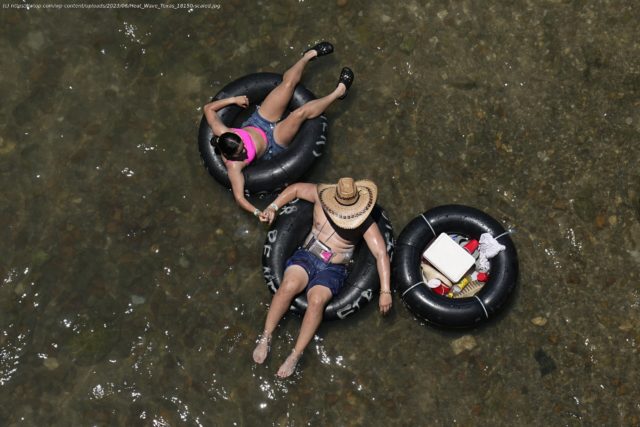PHOENIX (AP) — Heat waves like the one that engulfed parts of parts of the South and Midwest and killed more than a dozen people are becoming more common…
Heat waves like the one that engulfed parts of parts of the South and Midwest and killed more than a dozen people are becoming more common, and experts say the extreme weather events, which claim more lives than hurricanes and tornados, will likely increase in the future.
A heat dome that pressured the Texas power grid and killed 13 people there and another in Louisiana pushed eastward Thursday and was expected to be centered over the mid-South by the weekend. Heat index levels of up to 112 degrees (44 Celsius) were forecast in parts of Florida over the next few days.
Eleven of the heat-related deaths in Texas occurred in Webb County, which includes Laredo. The dead ranged in age from 60 to 80 years old, and many had other health conditions, according to the county medical examiner. The other two fatalities were Florida residents who died while hiking in extreme heat at Big Bend National Park.
Scientists and medical experts say such deaths caused by extreme heat will only increase in the U.S. each summer without more action to combat climate change that has pushed up temperatures, making people especially vulnerable in areas unaccustomed to warm weather.
“Here in Boston we prepare for snowstorms. Now we need to learn how to prepare for heat,” said Dr. Gaurab Basu, a primary care physician and the director of education and policy at the Center for Climate, Health, and the Global Environment at Harvard T.H. Chan School of Public Health.
Planting more trees to increase shade in cities and investing in green technology like heat pumps for home cooling and heating could help, Basu said.
Extreme heat already is the deadliest of all weather events in the United States, including hurricanes, tornadoes, wildfires and flooding.
“Heat waves are the deadliest because they affect such large areas and can go on for days or weeks,” said Joellen Russell, a climate scientist who teaches at the University of Arizona in Tucson and is currently on a Fulbright scholarship in Wellington, New Zealand.






